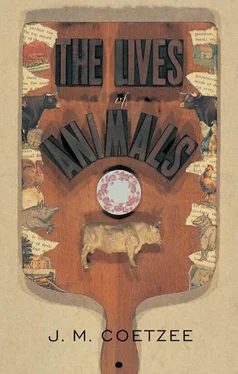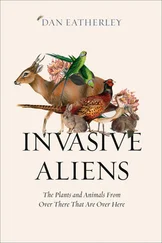“Fullness of being is a state hard to sustain in confinement. Confinement to prison is the form of punishment that the West favors and does its best to impose on the rest of the world through the means of condemning other forms of punishment (beating, torture, mutilation, execution) as cruel and unnatural. What does this suggest to us about ourselves? To me it suggests that the freedom of the body to move in space is targeted as the point at which reason can most painfully and effectively harm the being of the other. And indeed it is on creatures least able to bear confinement—creatures who conform least to Descartes’s picture of the soul as a pea imprisoned in a shell, to which further imprisonment is irrelevant—that we see the most devastating effects: in zoos, in laboratories, institutions where the flow of joy that comes from living not in or as a body but simply from being an embodied-being has no place.{John Berger: “Nowhere in a zoo can a stranger encounter the look of an animal. At the most, the animal’s gaze flickers and passes on. They look sideways. They look blindly beyond. They scan mechanically…. That look between animal and man, which may have played a crucial role in the development of human society, and with which, in any case, all men had always lived until less than a century ago, has been extinguished.” About Looking (New York: Pantheon, 1980), 26.}
“The question to ask should not be: Do we have something in common—reason, self-consciousness, a soul—with other animals? (With the corollary that, if we do not, then we are entitled to treat them as we like, imprisoning them, killing them, dishonoring their corpses.) I return to the death camps. The particular horror of the camps, the horror that convinces us that what went on there was a crime against humanity, is not that despite a humanity shared with their victims, the killers treated them like lice. That is too abstract. The horror is that the killers refused to think themselves into the place of their victims, as did everyone else. They said, ‘It is they in those cattle-cars rattling past.’ They did not say, ‘How would it be if it were I in that cattle-car?’ They did not say, ‘It is I who am in that cattle-car.’ They said, ‘It must be the dead who are being burnt today, making the air stink and falling in ash on my cabbages.’ They did not say, ‘How would it be if I were burning?’ They did not say, ‘I am burning, I am falling in ash.’
“In other words, they closed their hearts. The heart is the seat of a faculty, sympathy , that allows us to share at times the being of another. Sympathy has everything to do with the subject and little to do with the object, the ‘another,’ as we see at once when we think of the object not as a bat (‘Can I share the being of a bat?’) but as another human being. There are people who have the capacity to imagine themselves as someone else, there are people who have no such capacity (when the lack is extreme, we call them psychopaths), and there are people who have the capacity but choose not to exercise it.
“Despite Thomas Nagel, who is probably a good man, despite Thomas Aquinas and René Descartes, with whom I have more difficulty in sympathizing, there is no limit to the extent to which we can think ourselves into the being of another. There are no bounds to the sympathetic imagination. If you want proof, consider the following. Some years ago I wrote a book called The House on Eccles Street . To write that book I had to think my way into the existence of Marion Bloom. Either I succeeded or I did not. If I did not, I cannot imagine why you invited me here today. In any event, the point is, Marion Bloom never existed . Marion Bloom was a figment of James Joyce’s imagination. If I can think my way into the existence of a being who has never existed, then I can think my way into the existence of a bat or a chimpanzee or an oyster, any being with whom I share the substrate of life.
“I return one last time to the places of death all around us, the places of slaughter to which, in a huge communal effort, we close our hearts. Each day a fresh holocaust, yet, as far as I can see, our moral being is untouched. We do not feel tainted. We can do anything, it seems, and come away clean.
“We point to the Germans and Poles and Ukrainians who did and did not know of the atrocities around them. We like to think they were inwardly marked by the aftereffects of that special form of ignorance. We like to think that in their nightmares the ones whose suffering they had refused to enter came back to haunt them. We like to think they woke up haggard in the mornings and died of gnawing cancers. But probably it was not so. The evidence points in the opposite direction: that we can do anything and get away with it; that there is no punishment.”
A strange ending. Only when she takes off her glasses and folds away her papers does the applause start, and even then it is scattered. A strange ending to a strange talk, he thinks, ill gauged, ill argued. Not her métier, argumentation. She should not be here.
Norma has her hand up, is trying to catch the eyes of the dean of humanities, who is chairing the session.
“Norma!” he whispers. Urgently he shakes his head. “No!” “Why?” she whispers back.
“Please,” he whispers: “not here, not now!”
“There will be an extended discussion of our eminent guest’s lecture on Friday at noon—you will see the details in your program notes—but Ms. Costello has kindly agreed to take one or two questions from the floor. So—?” The dean looks around brightly. “Yes!” he says, recognizing someone behind them.
“I have a right!” whispers Norma into his ear.
“You have a right, just don’t exercise it, it’s not a good idea!” he whispers back.
“She can’t just be allowed to get away with it! She’s confused!” “She’s old, she’s my mother. Please!”
Behind them someone is already speaking. He turns and sees a tall, bearded man. God knows, he thinks, why his mother ever agreed to field questions from the floor. She ought to know that public lectures draw kooks and crazies like flies to a corpse.
“What wasn’t clear to me,” the man is saying, “is what you are actually targeting. Are you saying we should close down the factory farms? Are you saying we should stop eating meat? Are you saying we should treat animals more humanely, kill them more humanely? Are you saying we should stop experiments on animals? Are you saying we should stop experiments with animals, even benign psychological experiments like Köhler’s? Can you clarify? Thank you.”
Clarify. Not a kook at all. His mother could do with some clarity.
Standing before the microphone without her text before her, gripping the edges of the rostrum, his mother looks distinctly nervous. Not her métier, he thinks again: she should not be doing this.
“I was hoping not to have to enunciate principles,” his mother says. “If principles are what you want to take away from this talk, I would have to respond, open your heart and listen to what your heart says.”
She seems to want to leave it there. The dean looks nonplussed. No doubt the questioner feels nonplussed too. He himself certainly does. Why can’t she just come out and say what she wants to say?
As if recognizing the stir of dissatisfaction, his mother resumes. “I have never been much interested in proscriptions, dietary or otherwise. Proscriptions, laws. I am more interested in what lies behind them. As for Köhler’s experiments, I think he wrote a wonderful book, and the book wouldn’t have been written if he hadn’t thought he was a scientist conducting experiments with chimpanzees. But the book we read isn’t the book he thought he was writing. I am reminded of something Montaigne said: We think we are playing with the cat, but how do we know that the cat isn’t playing with us?{“Apology for Raimon Sebonde.”} I wish I could think the animals in our laboratories are playing with us. But alas, it isn’t so.”
Читать дальше












